What's Your Style?
 |
Click to get this lesson as an Adobe Acrobat file for printing or use in a class. |
 |
Click to listen to this lesson while you read. |
I am a little bit old-fashioned. Or maybe another word is conservative. What I mean is that my taste in clothes is the same today as it was five years ago. My tastes don't change very much and my younger students tell me I dress like a grandfather. Of course, I try not to be insulted.
Click Here for Step-by-Step Rules, Stories and Exercises to Practice All English Tenses
My "tastes" refer to the kind of things that I like. I have tastes in music, tastes in clothes, and tastes in food. Maybe you can guess that my taste in clothes means the clothes that I like. And, old-fashioned means that I like clothes that are, well, old. I like the hats that people wore in the 1950s. I like the suits people wore in the 1930s. I like old clothes.
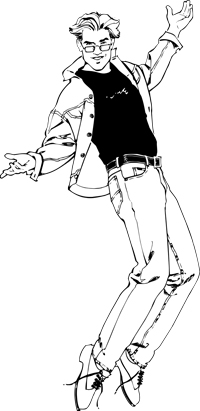
Normally, the opposite of old-fashioned is modern. "Modern" means that something is new, or was made in the last year or two. Of course, a "modern" building can be older than "modern" clothes. Buildings get old a lot more slowly than clothing does!
When we talk about clothing, though, we don't often use the word "modern." More often, you'll hear people use the words trendy, fashionable and simply "cool." By now you know that "cool" can mean anything good in English! The other two words, though, all have the same meaning.
In the U.S., the tastes that people had in clothing last year, aren't the same as the tastes they have this year. Every year, there are new tastes in clothing. These tastes are called trends or fashions. Each of these words means the same thing: the tastes that everyone seems to have this year. When you look at advertising, the clothing you see is probably in the newest trend. If you get a catalog with clothing in it, you'll be able to see the newest fashions.
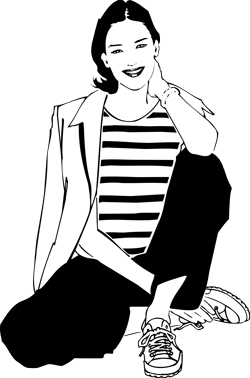
Of course, not everyone wears trendy clothes. I don't. I wear old-fashioned clothes. Other people try to wear clothes that are as different from the current fashions as possible. We call these people "non-conformists," it's a term meaning that they try to be different. Some people (usually the trendy people) like to laugh at the non-conformists. One common line is: "isn't it funny how they're all different the same way?"
Some non-conformist clothing helps people show that they belong to a sub-culture. Maybe words like "goth" (black clothes, black hair, white make-up and dark lipstick), "punk" (metal chains, leather clothes and brightly colored hair), "skinhead" (a shaved head, work-shirts and short jeans, and boots), or "emo" (tight T-shirts, tight jeans and straight black hair) are in your language, too. They are all sub-cultures who identify themselves with their clothing.
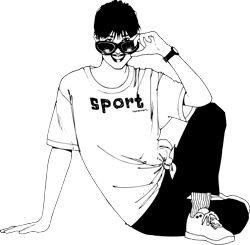
What kind of tastes do you have? Are you old-fashioned? Or is your clothing more trendy? Are you a non-conformist? If someone else saw you, how would they describe you?
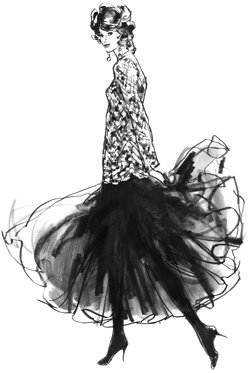
Do Clothes Make the Man?
"Clothes Make the Man," says a common English saying. The meaning is simple: what you wear decides who you are. After all, you don't see any millionaires wearing old t-shirts do you? (I bet you do.)
Another saying encourages people to "dress for success." That simply means: wear the costume (wear the clothes people expect you to wear) and they'll treat you the way you want.
If you're looking for a job, everyone knows that you don't go to the job interview looking like you need a job. You don't go wearing old clothes, with a ketchup stain on your tie. You go in looking like you have a job: you wear a new set of clothes, polished shoes. The idea is that the interviewer will be so impressed with your appearance that he gives you the job because you "look" like the kind of person he's looking for.
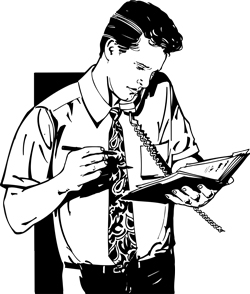
What do you think? Do "clothes make the man?" Is it possible to "dress for success?" How important are clothes to the way people see you? How important are clothes to the way people perceive you? How important are the clothes you wear to the way you see yourself?
Get Updates, Special Offers, and English Resources
Download your FREE GIFT (the first two chapters of
English Short Stories Book and Workbook)
as soon as you join!

By submitting your email, you consent to receiving updates and newsletters from us and to the sharing of your personal data with third parties for the purposes of sending you communications. We will not spam you. You can unsubscribe at any time. For more information, please see our privacy policy.





